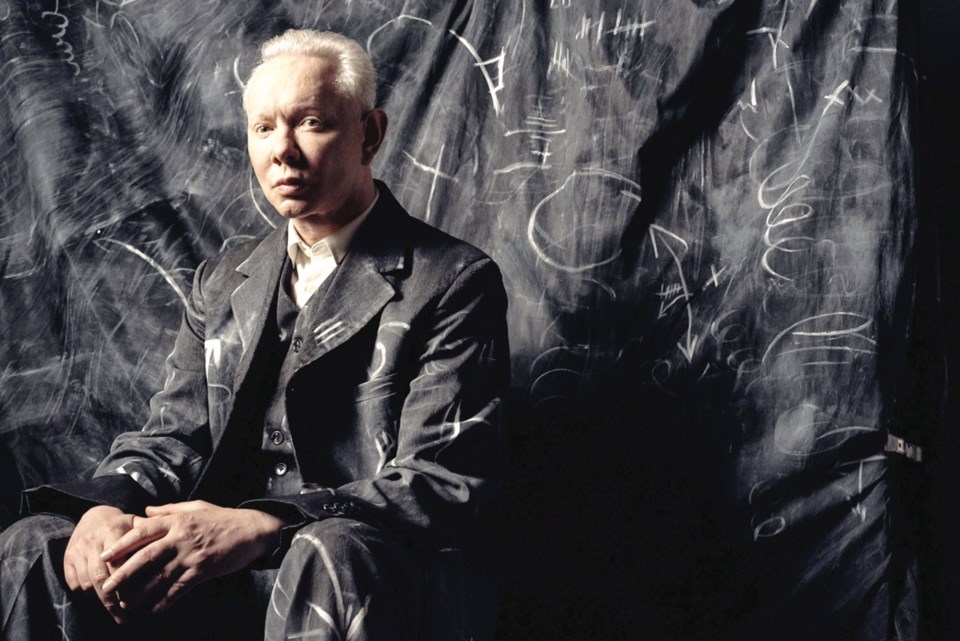What: An Evening with Joe Jackson
When: Saturday, 7:30 p.m.
Where: Royal Theatre, 805 Broughton St.
Tickets: $65.50 and $80.50
Joe Jackson remembers the exact moment his circle of friends and associates thought he had officially “made it” as an artist.
“When I had success with the Night and Day album, there were some pretty big shows,” Jackson, 61, said recently from his home in New York. “The pinnacle of it was Madison Square Garden in 1984, which pulled about 8,000 people.”
Given his reputation as an iconoclast, it should come as no surprise that Jackson’s version of success differs greatly from those of others.
“A lot of people were congratulating me, saying: ‘You’ve made it,’ and I was thinking: ‘Get me out of here.’ I hated it.”
The British-born performer enjoyed a big run of success in the late ’70s and early ’80s, joining the likes of Elvis Costello and others at the forefront of new wave, with singles that included Is She Really Going Out With Him?, Breaking Us in Two and Steppin’ Out.
But where others continued in a well-trodden direction, Jackson tackled a range of musical styles, from an album of classic swing and soundtrack work to experiments with classical music.
He eventually won his first Grammy Award in 2001 for Symphony No. 1, an album of pop instrumentals.
Jackson said he will touch upon all areas of his catalogue during his show Saturday in Victoria, his first here in several decades.
Jackson — who once said he didn’t have “the faintest idea” how to describe the music he makes — knows his career is not one through which a line can easily be drawn. Writing his nightly setlist is no easy exercise.
“I wouldn’t call it stress, but it takes a fair amount of thought,” he said. “We’re playing music from the new album, a lot of old songs as well, sometimes in quite new versions. And we throw in a cover or two. We try to make it interesting and fun. I want it to be fun. If this ever stops being fun, I’ll stop doing it, I promise you.”
He has been on the road in recent months with bassist Graham Maby, guitarist Teddy Kumpel and drummer Doug Yowell, on a tour to support his 20th album, Fast Forward.
Jackson said he envisioned his first collection of original songs in seven years as a series of four EPs, recorded in four cities with four separate bands. His manager and label had different plans.
“I was stockpiling songs, and took some time off to write. I was looking for a way to organize this material, and the idea was intriguing to me. But when it came down to it, I was the only person who liked the idea.”
Though he called it a “logistical nightmare,” he sought musicians he wanted to work with on the album, and went from there.
Jackson stuck to his four-cities-four-bands approach and recorded Fast Forward in New York, Berlin, Amsterdam and New Orleans with a lineup that includes guitarist Bill Frisell, drummer Brian Blade, violinist Regina Carter and members of Amsterdam’s Royal Concertgebouw Orchestra, among others.
“It’s incredible that these guys all said yes when I got in touch with them. Then I had to go ahead and actually do it, so that was when the real work actually started.”
Makings things easier were recording sessions in New York and Berlin, where he has lived for some time.
“I’ve been trying to live in Berlin for the past seven or eight years, but keep getting sucked back into the gravitational field of New York,” Jackson said with a laugh. “Back in the ’80s, when I first moved to New York, I really loved it. But I got tired of the sound of my own voice complaining about how it had changed after that, so I thought I really should leave. But I have so many connections here.”
He hopes to make a connection of his own during each performance. Playing live, surrounded by his bandmates, is when Jackson feels most himself as an artist.
“People maybe imagine I would be able to sit there and play solo [on the piano] for a whole evening. Not only would that be a lot less fun for me, it wouldn’t really work with a lot of the songs.”
Jackson is not someone who treats the studio as sacrosanct.
“[A concert is] making a connection with the audience, which you’re not going to feel in a recording studio.
“I find it weird when I hear about musicians who just love the studio and don’t really want to leave it. The studio is fine in a different way, but the fun thing for me is to make that connection with an audience.”



